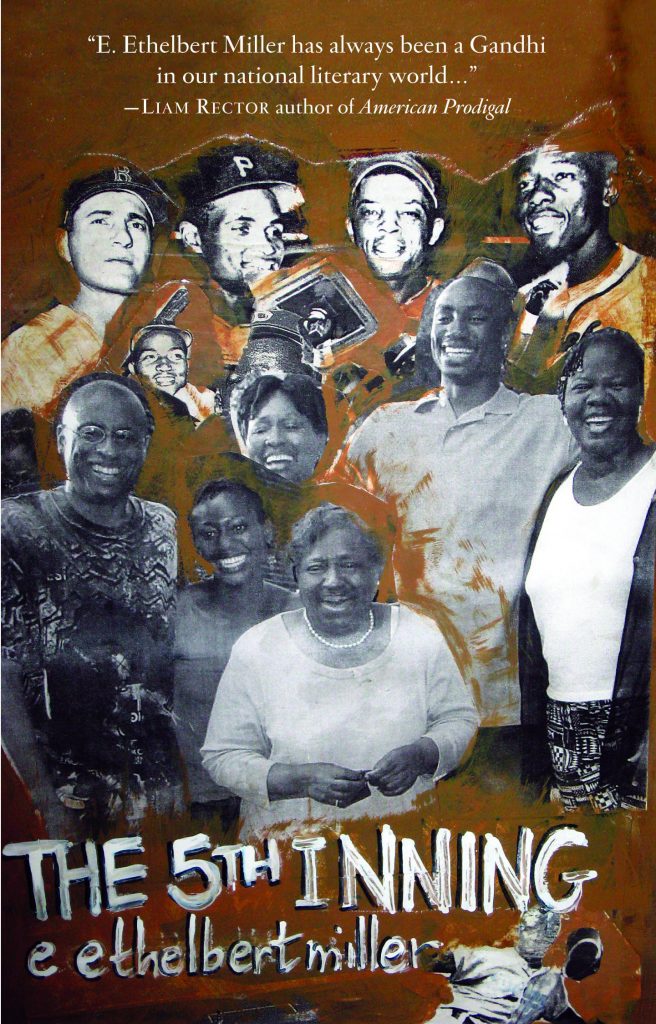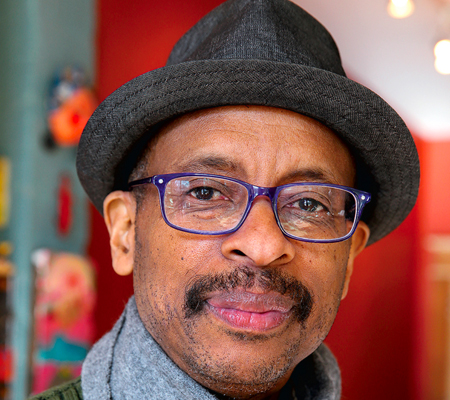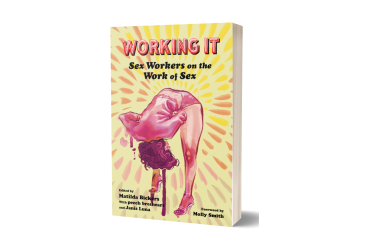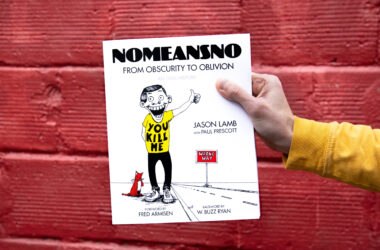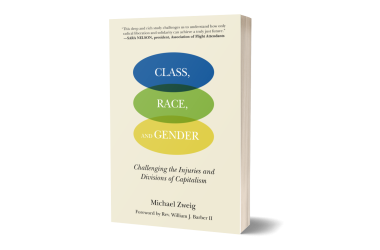Posted on by thepoetslist
Each year, millions of viewers tune in as the National Academy of Recording Arts and Sciences (Recording Academy) presents one of the United States’ most prestigious music ceremonies: The Grammy Awards.
In 2022, The Recording Academy sent waves through the poetry world when it announced that its 65th Annual Awards (airing, February 5, 2023) will see several new categories, including a designation specifically for poetry: Best Spoken Word Poetry Album.
Poets were previously housed under the original Best Spoken Word Album category, which served as a catch-all for narrated recordings. That category has now been split into two: #60 Best Audio Book, Narration, and Storytelling Recording and #61 Best Spoken Word Poetry Album. The move honors both the uniqueness of the poetry genre as well as the passionate work of its purveyors.
The five inaugural poetry nominees are: Malcolm-Jamal Warner, J. Ivy, E. Ethelbert Miller, Amanda Gorman and Amir Sulaiman.
The Poet’s List is honored to present our interview with phenomenal poet and GRAMMY nominee: E. Ethelbert Miller.
On Poetry:
Prior to landing on poetry, what memories do you have of your relationship with literature and writing as a youth?
I started my serious writing when I arrived on the campus of Howard University in 1968. I had good teachers and mentors who encouraged my writing. They also introduced me to writers like Langston Hughes and Countee Cullen. I learned about the New Negro Movement (Harlem Renaissance), the Black Arts Movement and the Negritude Movement that began in France. While I was a student at Howard, I was able to meet many famous writers like Sterling A. Brown, Owen Dodson, Haki Madhubuti and John Killens. Prior to coming to Howard, my interest in poetry was stimulated by singer/writers like Bob Dylan, Phil Ochs and Paul Simon.
There are so many layers to creating poetry, and several avenues for disseminating. Which aspect of the process excites you the most?
For many years I edited Poet Lore magazine with Jody Bolz. Poet Lore is the oldest ongoing poetry journal published in the United States. It was established in 1889 by Charlotte Porter and Helen Clarke. Editing the journal helped deepen my appreciation for the many styles of poetry, especially work that was different from my own. Editing also made me more aware of how poems were constructed.
Today, I enjoy collaborating with other artists. In 2023, I will be publishing a book of poems written, together, with the Japanese poet and translator, Miho Kinnas.
I will be having an exhibit with the Ethiopian visual artist, Kebedech Tekleab, at the Katzen Arts Center in Washington D.C.

On Career:
When did you begin to claim the title of poet and how did you first connect with the poetry community?
I made the career decision to become a writer during my sophomore year at Howard University. I also felt if I was to become a successful writer, I needed institutional support. It was the main reason why, after graduating in 1972, I remained at the institution. I was the director of the African American Resource Center at Howard from 1974-2015. During this time, I met many writers. I helped organize poetry reading and writers conferences. I also helped to mentor a number of individuals who are major American writers today.
Your incredible catalog includes your collections of print poetry which have spanned the 1970s to the 2000s. And of course, you are currently being recognized for, Black Men Are Precious. Of your body of work, which piece or collection would you like to serve as your *introduction* for the generations to come?
I think I would encourage people who are not familiar with my work to read my first memoir, Fathering Words: The Making of an African American Writer (published in 2000 by St. Martin’s Press and republished by Black Classic Press in 2013). One might also want to read The Collected Poems of E. Ethelbert Miller (Aquarius Press, 2016), edited by my literary assistant Kirsten Porter. This book features 40 years of my work.
We would love to hear more about Black Men Are Precious. Please feel free to share as much as you’d like with regards to its creation, its reception and what it means to you.
“Black Men Are Precious” is a poem I wrote in response to seeing so many Black men younger than me dying for various reasons. I think I first read it in public the day Congressman Elijah Cummings died; that was in October 2019. I happened to be giving a reading in Maryland and so I read the poem for him. I remember when he was a student at Howard University. I like that the poem includes a reference to the song, “Precious Lord.”

How has the poetry landscape changed from when you entered to now? Could you have envisioned this level of opportunity or success?
The poetry landscape has been transformed in many good ways since I started writing back in the late 60s. I think poetry has a much larger audience today as a result of slams, open mics, poetry contests and the many poet laureates working around the country to promote poetry. There are organizations like Cave Canem, Canto Mundo and Kundiman that serve poets of color. There are more people of color enrolled in MFA programs. However much of the energy appears to be coming from the generation embracing spoken word and performance poetry.
From schools to prisons, people are finding their voices. In many ways, poetry might be saving the lives of some of our young people. People are sharing their emotions and not keeping them inside. Young poets are outspoken when it comes to social and political issues. The word has been spoken. It is essential that our ears begin to listen, to hear.
But then, on another level, what we are seeing is what the poet and critic Amiri Baraka saw when writing about Black music. Baraka spoke about the “changing same.” Things appear to be new, but sometimes it’s just something that is the same and ongoing. So, we continue to be the children of Walt Whitman and Langston Hughes. We follow Lucille Clifton, June Jordan and Audre Lorde and Gil Scott-Heron into a new conversation with our souls.
In what ways would you like to see the poetry community grow and evolve in the coming years?
I think the poetry community will become more diverse. I look for the poets of the future to recite their work in more than one language. I see poems occupying more public space. Poems on buses, poems included in murals. More poems recited at business meetings and at funerals. Hopefully how we teach poetry in our schools will improve. We will see it as serious art and not just entertainment.
The poets of the future will be explorers. They will write poems that will speak for the land, animals and water – for we must ask our poems to protect us.

Awards + Advice:
You describe yourself as a “literary activist.” May you please touch on its meaning and how it manifests?
As a literary activist, my responsibility is to honor the tradition; to protect and preserve it. During my career as a writer, I’ve placed a heavy emphasis on documenting literary history. I’ve established a very large personal archive at George Washington University (Gelman Library) for future journalists, writers and scholars to use.
What does it mean to be honored by The Recording Academy as part of the Best Spoken Word Poetry category at this year’s GRAMMY Awards?
I think The Recording Academy recognizing spoken word helps increase the audience and market for poetry. It will give unknown voice an opportunity and desire to be known. Like National Poetry Month started by the Academy of American Poets in 1996—and celebrated every April—the Grammy Awards will also help to lift the veil and shine light on something that I believe is as essential as air.
How would you describe your fellow cohort of inaugural poets?
I think the inaugural poets reflect a wide spectrum of poetic voices. We don’t want all our musicians to sound the same, so it should be when we listen to our poets.
What has been the greatest piece of advice you’ve received thus far (poetry related or other)?
In terms of advice : It’s important to speak the word – silently or loud.
In the words of Roque Dalton: “I believe the world is beautiful and that poetry, like bread, is for everyone.”
Please tune into the 65th annual Grammy Awards which will air live on February 5, 2023 on CBS. The winner for Best Spoken Award Poetry Album will be announced during the pre-telecast.
